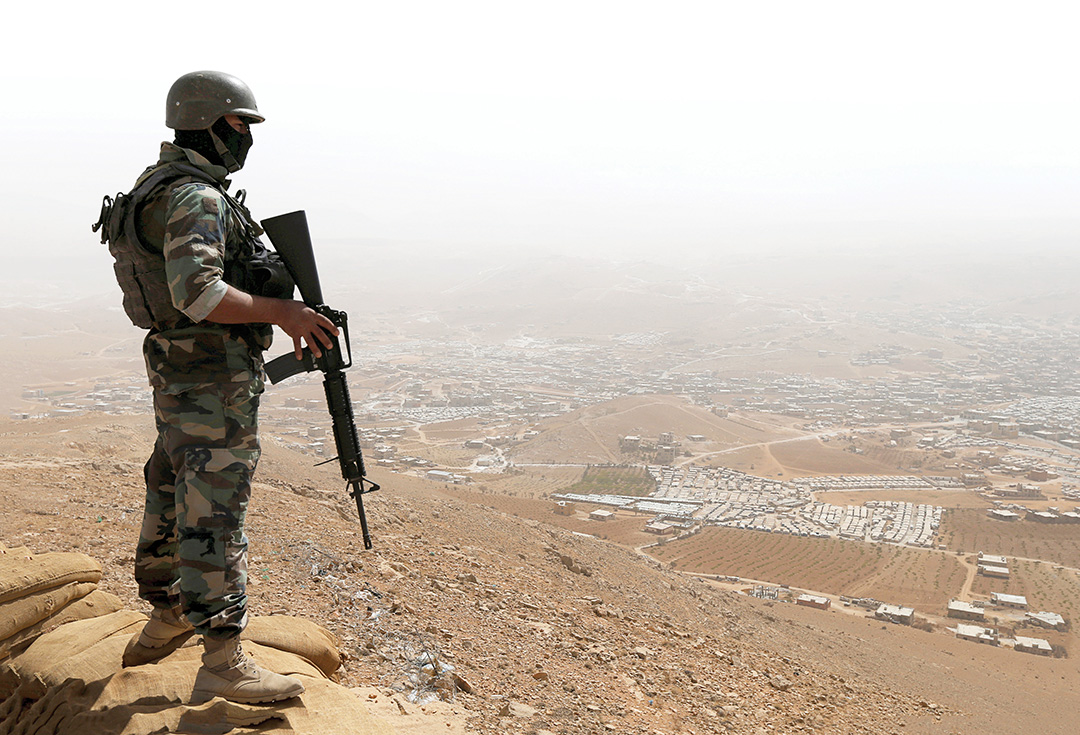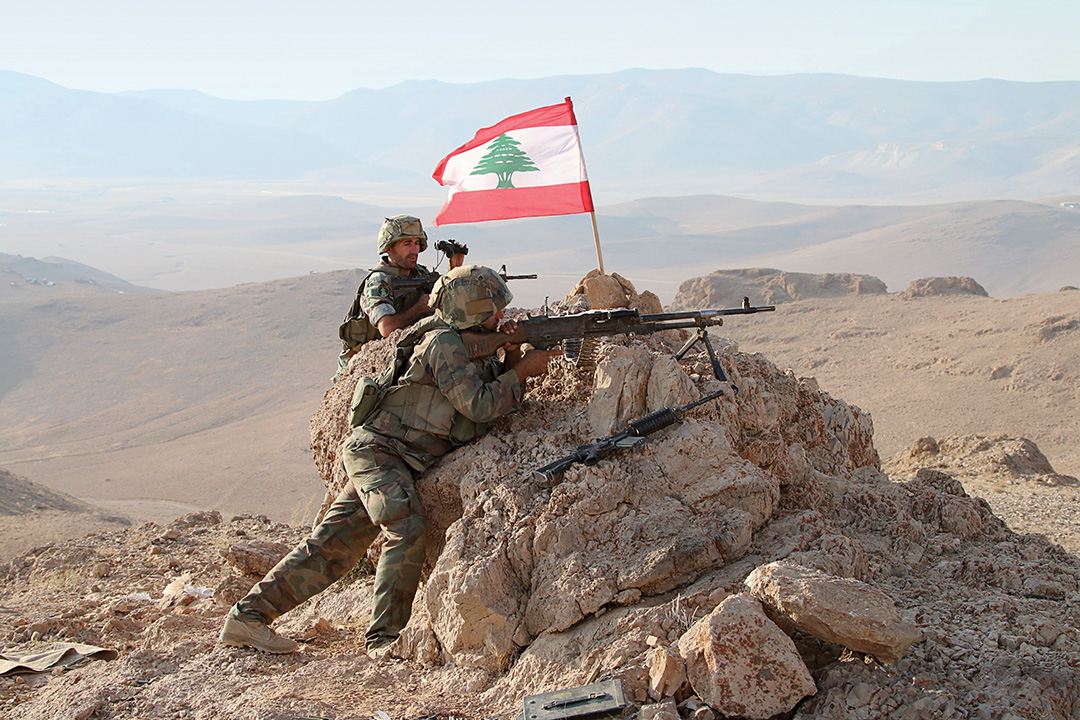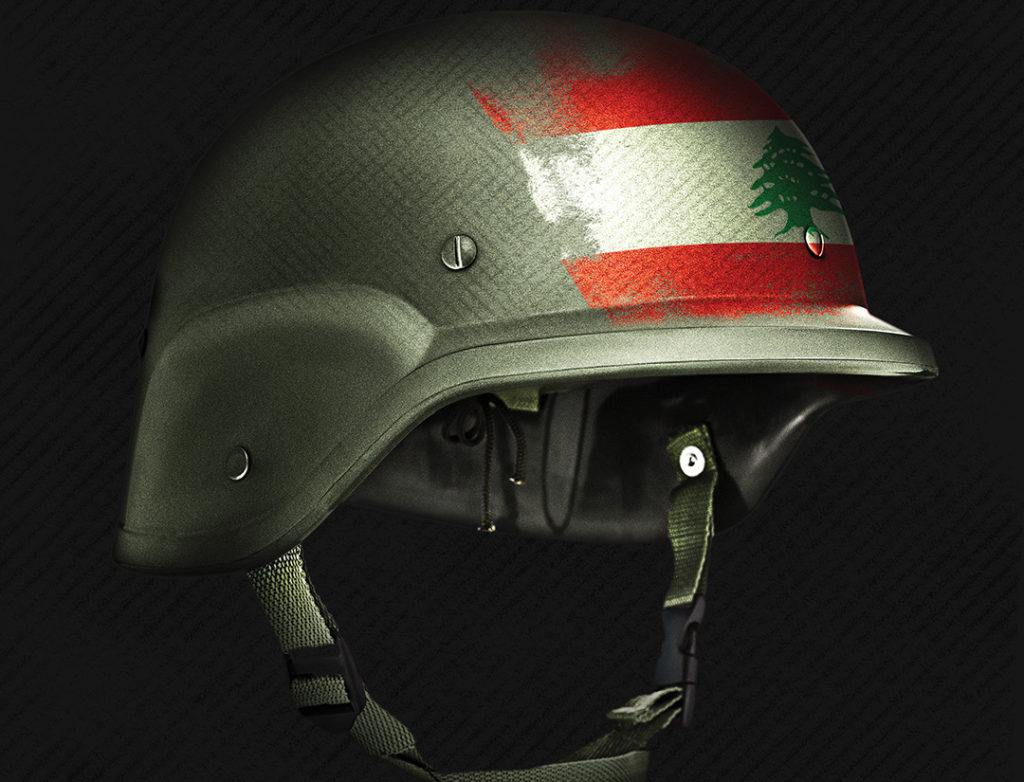Soldiers defend borders, provide internal security and engage in humanitarian missions
LEBANESE ARMED FORCES
Lebanon enjoys a distinct international status despite its limited area and its small population of about 6 million. Some may wonder about the power behind that status, and the answer came from the great Pope John Paul II: “Lebanon is more than a country; it is a message.”
This small country is rich in the values of its people and its humanitarian civilization. On its territory are 18 sects, among them Muslims, Christians and minorities, all living in harmony and peace. This historical example of coexistence can serve as a model for the success of diversity and unity.
In addition, Lebanon’s geopolitical importance is illustrated by its location on the eastern rim of the Mediterranean Sea, serving as a bridge between the West and the Middle East. This is in addition to the superiority of Lebanon throughout history in the fields of science, thought and creativity.
However, these factors, which are a source of wealth for Lebanon, have been and still are subject to internal and external challenges.

What is almost unique to Lebanon among the countries of the world are regional difficulties that confront the nation. It has required extraordinary efforts, especially considering the continuing instability to the south since 1948 and the wave of terrorism in the Middle East that followed the so-called Arab Spring in late 2010.
Based on the above, the Lebanese Army has acquired a distinctive national role in defending Lebanon, protecting the message of its people and preserving its gains. The role of the Lebanese Army is divided into three main categories: defense, security and development.
Defensive mission
Defense is the main task of the Army. Many military units are deployed on the southern border and on the eastern and northern borders with Syria to face any aggression against Lebanon.
Maintaining internal security
In most countries of the world, internal security forces and local police are often assigned this task. But because of Lebanon’s unique environment and the repercussions of the internal events that took place between 1985 and 1990 — including the activities of armed militias — the Council of Ministers in 1991 mandated that the Army and Lebanese security forces maintain internal security.
This decision led to the collection of militia weapons and the deployment of the Army in most of Lebanon.
This task includes the establishment of checkpoints and patrols, raids in search of wanted people, immediate intervention in cases of security breaches, and providing security for demonstrations and gatherings.
The Army also provides security to conduct parliamentary and municipal elections; protects national, cultural and artistic activities; combats organized crime and cross-border smuggling; and guards camps of displaced people and refugees.
Counterterrorism
The Lebanese Army reacted to the threat of global terrorism before other armies of the world and before terrorism became a global danger.
In early 2000, the state fought a harsh battle against a terrorist group that was holed up around Jarud al-Dniyeh in northern Lebanon. They were equipped with heavy and medium weapons and planned to establish an extremist emirate in northern Lebanon. The Army successfully completed the battle and captured many individuals.
In 2007, the Army again fought a long battle, this time against Fatah al-Islam, the terrorist organization that was planning a takeover of the north for use as a base to spread terrorism over other parts of Lebanon. This battle ended with the elimination of a large number of terrorists.
With the launch of the Arab Spring in early 2011 and the flare-up of security events in Syria, many local groups appeared. The most serious was the group led by terrorist Ahmad al-Asir in the Saida region, which in 2013 attacked military posts in the area. The Army fought back and managed to eliminate the threat quickly.
Dangerous terrorist organizations participating in the Syrian events, the most prominent of which were ISIS and Jabhat al-Nusrah, used the northern and eastern borders of Lebanon with Syria and began dispatching booby traps, carrying out rocket attacks and launching rockets into the Lebanese interior.

These attacks included an incursion into the town of Arsal on the eastern border and attacks on troops deployed in the region in 2014 with the aim of seizing the area extending from the eastern mountains to the sea at the northern city of Tripoli.
But the Army was on guard for such a move. It carried out a large-scale attack in which it managed to expel the terrorists from Arsal and its surroundings.
After that, the Army almost daily tightened its grip on the terrorists, peppering its positions with aircraft and heavy artillery. It carried out pre-emptive operations of quality in their areas of deployment, which led to the destruction and encirclement of enemy forces.
On August 19, 2017, Lebanese Armed Forces Commander Gen. Joseph Aoun announced the launch of the “Dawn of the Outskirts” operation to liberate the eastern mountains from ISIS. Within a week, this organization was defeated and expelled completely from Lebanese territory.
The Lebanese Army was the first among armies of the region to achieve victory over an organized terrorist body occupying part of its territory.
There is no doubt that the success of this operation at record speed is due to the fighting qualities and high morale of the Lebanese Soldier, the involvement of different sects in the Army and their rejection of terrorism. In addition, qualitative assistance was provided by many friendly countries, led by the United States and the European Union (EU).
However, despite this great victory, the danger of terrorism remains in Lebanon, an assumption the Army acts on by monitoring terrorist cells and eliminating them in their infancy.
It should be noted here that the Army’s war against terrorism, particularly security measures in Lebanese territorial waters and banning their use as a route for illegal immigration, has contributed to preventing the infiltration of terrorists from Lebanon into EU countries. The measure has thus limited terrorist operations targeting those countries.
In sum, the Army does not consider limiting the fight against terrorism to the security sector. The problem also must be dealt with intellectually. Terrorism is the clear opposite of a Lebanese society based on a culture of diversity, freedom and openness. Any security measures confronting terrorism must include a national and humanitarian focus and an information and cultural campaign aimed at spreading awareness among citizens about the dangers of terrorism and extremism, and its methods of distorting the principles and values of religious messages.
Development and humanitarian mission
In addition to the tasks of defense and security, the Army carries out another mission related to the lives of Lebanese citizens. It includes, but is not limited to, rebuilding the country’s infrastructure, removing mines, protecting the environment, supporting state institutions with energy and expertise, and restoring archaeological sites.
The Army is also involved in tourism, reforestation, and assisting students and residents of remote villages within the framework of the civil-military program.
Other efforts include search, rescue and evacuation operations in the event of natural disasters and other disasters. The Army participated in rescue operations for an air crash that occurred in 2003 in Cotonou, Benin, and for an Ethiopian passenger jet that crashed off the coast of Khaldeh, Lebanon, in 2010. Soldiers also recovered victims from the Panamanian cargo ship Danny F II after an accidental sinking off Tripoli in 2009.
The mission is to help citizens and contribute to national development, as well as to strengthen the bonds of trust between the Army and the people and to provide a model for state institutions that work for the public interest.
In conclusion, the strength of the Lebanese Army — and local and international confidence in its national role — is the result of its dedication to its military and patriotic mission and its faith in the aspirations of its people.
It commits fully to international resolutions, charters and human rights, and works within its country’s borders. It has never attacked anyone, but has always been and will remain poised to defend the nation’s sovereignty and independence. Any military support provided by friendly countries is in the interest of Lebanon and in the interest of regional stability.

